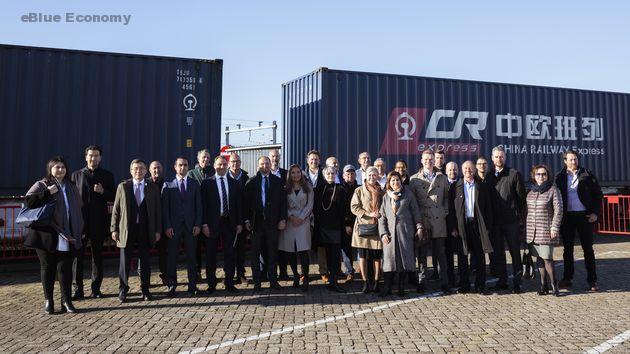Smaetcontainers Rotterdam-Moscow rail shuttle became a reality with its very first departure. For the first time since 2005, there is now a direct rail connection with the Russian capital. For now, the train will make a weekly round trip.
“Since 2020, trade between the Netherlands and Russia has been on the rise again,” says Frank Donkers, director of Smartcontainer. “So there is certainly a need for reliable, sustainable, and cost-effective container transport. With our shuttle service, we can provide it.”
Representatives of the embassies of Russia, Belarus, Kazakhstan, and Armenia were present at the launch. “It is great to witness the start of the train connection between Rotterdam RSC and Moscow,” adds Gilbert Bal, senior business manager Supply Chain & Logistics at the Port of Rotterdam Authority. “It not only connects Rotterdam with Russia but also Belarus and Kazakhstan. In addition, Rotterdam will act as a hub for cargo from and to the rest of Europe.”
The Rotterdam-Moscow shuttle departs on Thursdays at 10:00 from the Rail Service Center Rotterdam. Seven days later, after a stop in Brest in Belarus, the train reaches its final destination: the railway terminals of Selyatino and Vorsino near Moscow. “From where, there are connections to, among others, Novorossiysk, St. Petersburg, Vostochny, Yekaterinburg, Novorsibirsk, and China; via border crossings Zabaikalsk, Erlian and Naushki.”

Russian hardwood
The train consists of twenty 90′ wagons that can handle a combination of different containers. Donkers: “We are very flexible, from dry cargo to tank containers. There are lots of possibilities. Westwards we already have bookings for Russian processed (hard) wood, grain, and other agriproducts. Eastwards, examples include exports of complete greenhouse systems via the containers on our trains.”

Eurasian countries
Smartcontainer is part of the Russian multimodal integrator RUSCON; belonging to the Delo Group and therefore, has good contacts and cooperation with Russian governmental organizations, such as customs and the Ministry of Agriculture. “With our existing network, we are in direct contact with other Eurasian countries such as Belarus, Armenia, Kazakhstan, and Azerbaijan. This allows us not only to guarantee a secure and lasting connection but also to offer our customers the necessary flexibility. Stops in Germany and Poland are among the possibilities. Ultimately, our ambition is to have three weekly container trains running by 2022.”
















